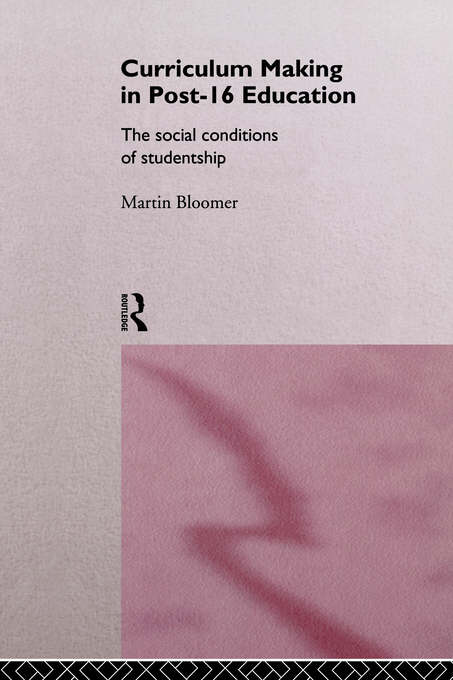Curriculum making in post-16 education: the social conditions of studentship

It is widely agreed that the post-16 curriculum in England and Wales is inadequate, mainly due to the successive reforms of various governments. YTS was a reaction to problems of youth unemployment, CPVE and BTEC embraced a 'broad' concept of vocationalism, and even with the introduction of NVQ and GNVQ the A-level retains its gold-standard in the eyes of many.
The post-16 curriculum that has emerged is hardly coherent. So how can teachers translate an externally imposed curriculum into a meaningful learning experience for students? Drawing on solid research in post-16 education, this book makes explicit the nature of flaws in policy, and provides an account of how teachers and students construct their roles. It puts forward the case for a radical reappraisal and identifies appropriate aims and organising principles for a post-16 curriculum for the future.
Show health and safety information
Please be aware that resources have been published on the website in the form that they were originally supplied. This means that procedures reflect general practice and standards applicable at the time resources were produced and cannot be assumed to be acceptable today. Website users are fully responsible for ensuring that any activity, including practical work, which they carry out is in accordance with current regulations related to health and safety and that an appropriate risk assessment has been carried out.






